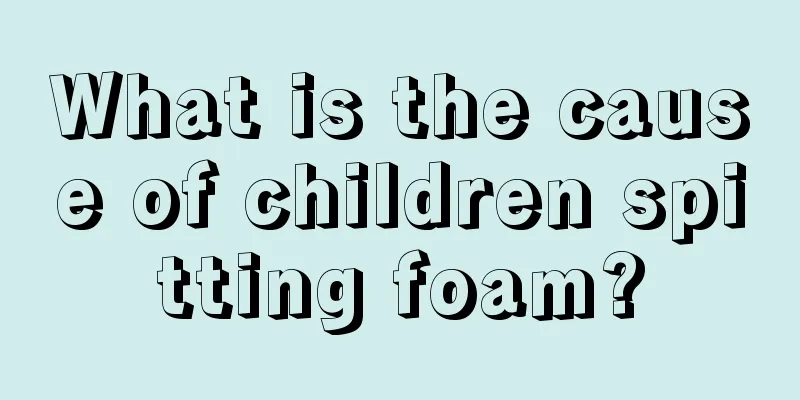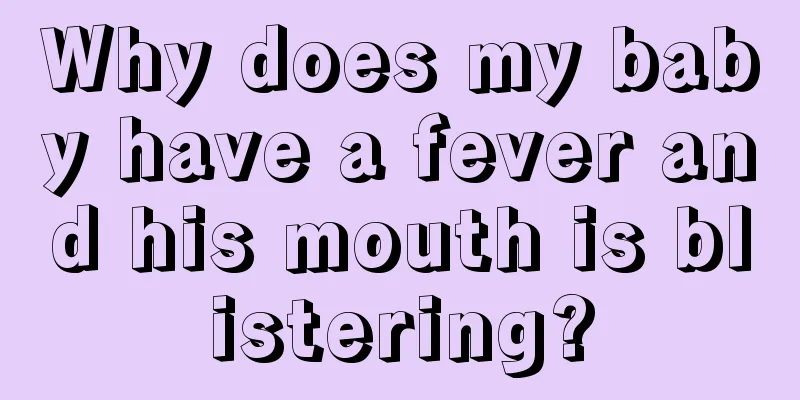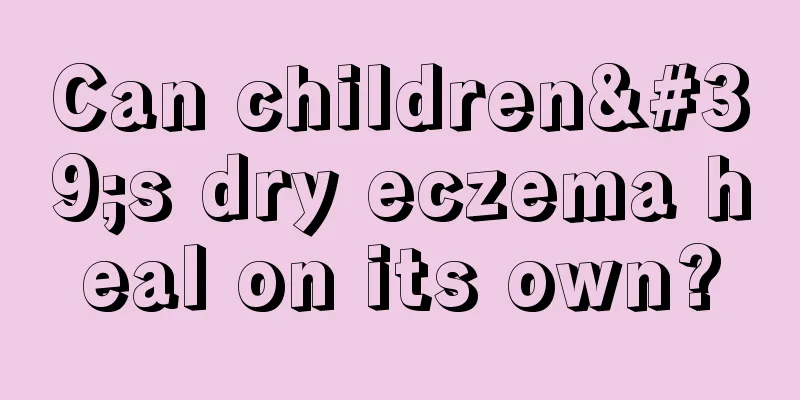What is the cause of children spitting foam?

|
Saliva is a normal secretion of the oral cavity, and spitting out saliva is a casual thing. However, if a child starts spitting foam, this will definitely attract the attention of parents. After all, if it is caused by a disease and it happens in such a young child, the biggest worry is that it will cause greater harm, and the reason behind it becomes the most concerning thing. So, what does it mean when children spit foam? Let’s take a look below. 1. Disease factors: Foamy mucus may be a symptom of systemic or gastrointestinal diseases. If your baby loses weight rapidly due to spitting up, or coughs while spitting up, or the vomit is brown or green, or it is vomited in a jet shape up to 70-80 cm away, these are likely signs of a disease. Most babies are happy vomiters. If the baby vomits very uncomfortably, it is very likely that the esophagus is inflamed, and parents need to take the baby to the hospital for treatment in time. 2. Physiological factors: The anatomical and physiological characteristics of the infant's gastrointestinal tract make it easy for the baby to vomit up. This is because the cardia between the esophagus and the stomach has not yet matured, and the vomiting occurs due to the need to expel some mucous membrane remaining in the body. Spitting up due to physiological reasons is common. When the baby spits up milk, the mucus in the stomach is also vomited out, which looks like foamy mucus. 3. Other reasons: The baby may also spit up milk because he eats too much and lies down immediately after feeding. This is all physiological spitting up, and parents don’t need to be too nervous. At the same time, be careful not to let your baby eat too much at one time. In general, if your baby occasionally spits up foamy mucus and appears to be in good spirits, it does not necessarily mean that he is sick. But if the baby vomits several times in a row and vomits every time he is fed, parents should pay attention to whether the baby has a fever, the condition of his bowel movements, any changes in his spirit, etc. Because this indicates that the baby may have gastrointestinal problems or there may be lesions in other body systems, you need to take the baby to the hospital to find out the cause. |
<<: What to do if your 7 month old baby has diarrhea
>>: Children with high immunoglobulin E
Recommend
What should I do if mycoplasma pneumonia is infected in children?
What parents of newborns worry about most is that...
What are the symptoms of ADHD in children?
I don't know if you have ever heard a saying ...
Symptoms of asthma in children at different stages
Children are a relatively large group in our live...
What to do if the baby's belly button is bleeding
Every baby is the apple of the mother's eye, ...
Is it okay for children to drink milk powder at night?
When parents are taking care of their children, t...
What is the cause of white spots on the baby's belly?
If the baby has white spots on his belly, parents...
Daily care for fever in baby's palms and soles
The baby is in a developmental stage and may be p...
What to do if your child has molluscum
Molluscum is an infectious skin disease caused by...
How to treat baby's malnutrition and spleen deficiency
Spleen deficiency is a very common disease. It ca...
Why does a child have blisters on his tongue when he has a fever?
When a child has a fever, parents will become ver...
What should I do if my child has phlegm in his mouth?
Having phlegm in the mouth is a very common pheno...
2-year-old baby refuses to eat and only drinks milk
Every baby is the apple of his parents’ eyes. Gen...
How to cook shrimp for one-year-old baby
Shrimp is a very good food. Many women who are lo...
What to do if children have bone necrosis?
Bone necrosis in children usually refers to the f...
Treatment of bacterial infection and fever in children
Children are the flowers of the motherland. Every...









